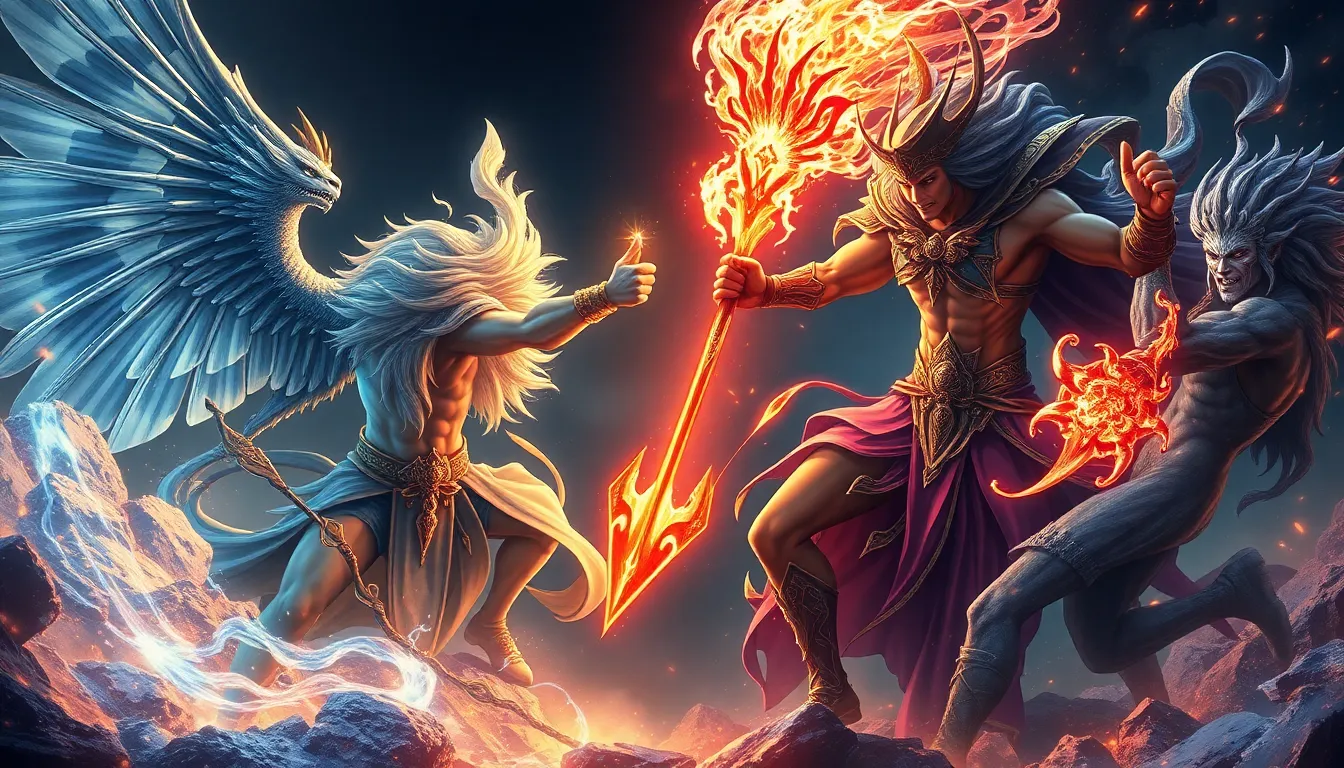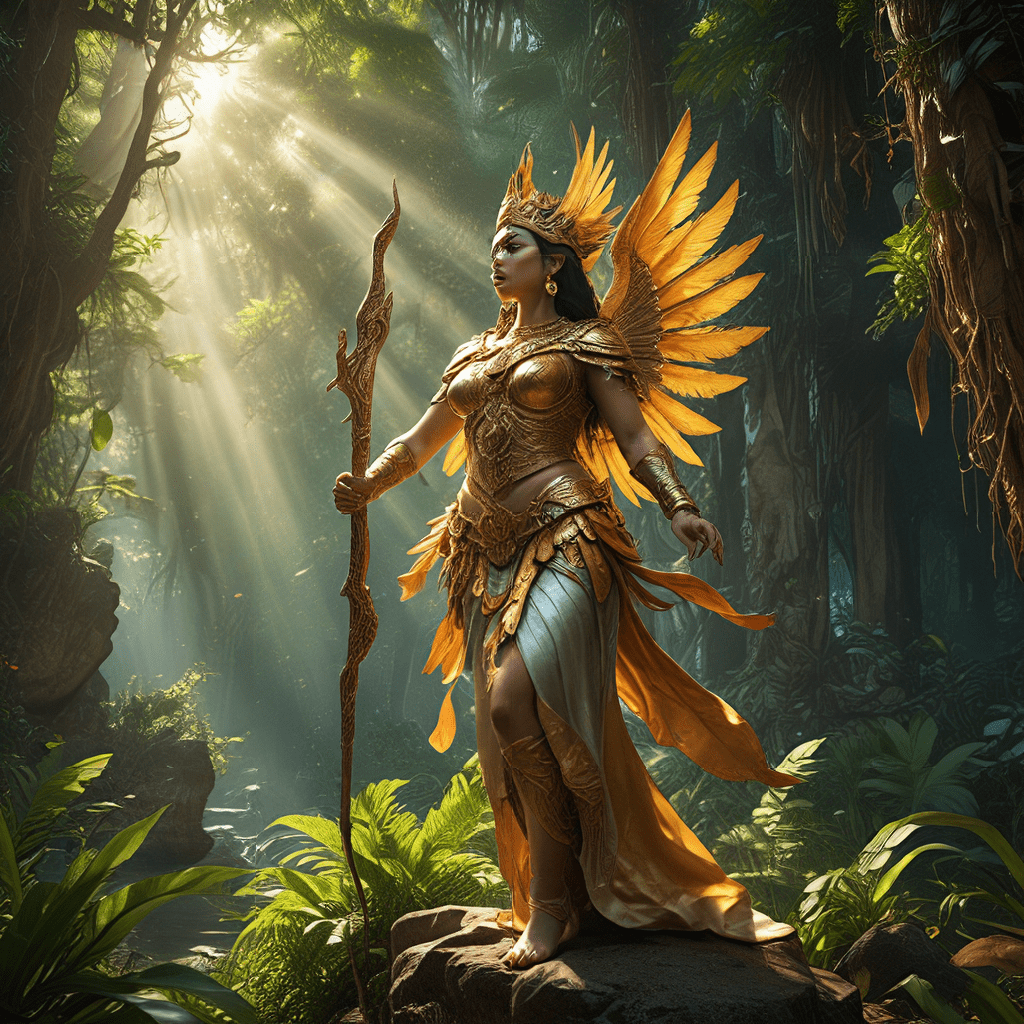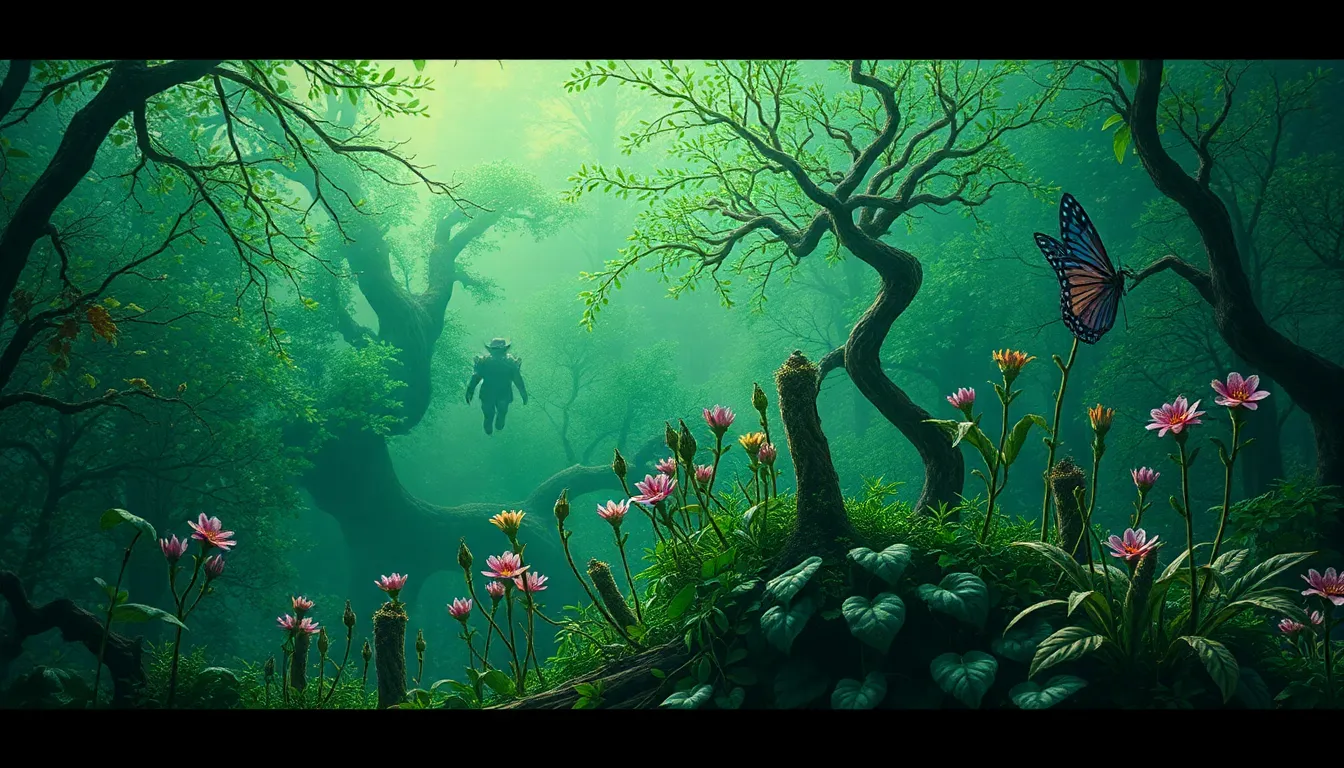Divine Duelists: The Most Epic Battles from Mythology!
I. Introduction to Mythological Battles
Mythological battles are some of the most captivating narratives found in ancient texts, where gods and heroes engage in epic duels. A divine duel can be defined as a conflict between formidable figures, often representing the forces of good and evil, order and chaos, or fate and free will. These battles are not merely physical confrontations; they are rich with symbolism and carry profound meanings that reflect the values and beliefs of the cultures from which they originate.
The significance of these battles in shaping mythological narratives cannot be overstated. They serve as pivotal moments that define characters, alter destinies, and convey the moral lessons of each tradition. Across various mythological traditions, from Greek to Norse to Hindu, we see a diverse array of combat scenarios that reveal the complexities of heroism, divine power, and the human condition.
II. The Concept of Honor and Valor in Mythological Combat
Honor and valor are central themes in ancient cultures, especially in the context of warfare and combat. The warriors and divine beings depicted in these myths often embody the ideals of bravery, loyalty, and righteousness. They engage in battles not just for glory but to uphold their honor and protect their communities.
- Honor in Ancient Cultures: Many ancient societies viewed honor as paramount; a warrior’s reputation could be built or destroyed in battle.
- Characteristics of Heroic Warriors: Heroic figures are often depicted as possessing exceptional strength, skill, and a deep sense of duty.
- Ethical Dilemmas: Divine duelists frequently face moral quandaries, questioning the righteousness of their cause and the consequences of their actions.
III. Greek Mythology: Heroes and Gods Clash
Greek mythology is replete with legendary battles that exemplify the conflicts between gods and mortals. Two of the most notable duels highlight the intense rivalries and the tragic outcomes often associated with them.
A. The Epic Showdown between Achilles and Hector
The duel between Achilles and Hector is one of the most famous in mythological history, symbolizing the clash between Greek heroism and Trojan valor. Achilles, the mightiest Greek warrior, seeks vengeance for the death of his friend Patroclus, leading to a fierce battle with Hector, the Trojan prince.
B. The Confrontation between Zeus and Typhon
In another monumental conflict, Zeus, the king of the gods, faces the monstrous Typhon, a creature born from Gaia and Tartarus. This battle represents the struggle for supremacy in the cosmos, showcasing Zeus’s power and the importance of maintaining order among the gods.
C. The Significance of Divine Intervention in Battles
Divine intervention plays a crucial role in these epic confrontations. Gods often take sides, influencing the outcomes of battles according to their allegiances, which reflects the belief in fate and the whims of the divine.
IV. Norse Mythology: Ragnarok and the Ultimate Battle
In Norse mythology, the prophecy of Ragnarok foretells the ultimate battle that will decide the fate of the gods and the world. This cataclysmic event is characterized by chaos, destruction, and rebirth.
A. The Prophecy of Ragnarok and Its Implications
Ragnarok signifies the end of the world as the gods face off against giants and monsters, including the treacherous Loki. This battle is not merely an ending but a precursor to renewal, emphasizing the cyclical nature of existence.
B. Key Figures in the Final Battle: Odin, Thor, and Loki
Odin, the Allfather, leads the gods into battle, while his son Thor fights against the serpent Jormungandr. Loki’s betrayal results in intense conflict, showcasing the themes of loyalty and treachery among divine beings.
C. Themes of Fate and Sacrifice in Norse Combat Narratives
The Norse myths are steeped in themes of fate and sacrifice, highlighting that even the mightiest gods are subject to destiny, and their sacrifices are necessary for the continuation of life.
V. Hindu Mythology: The Mahabharata’s Great War
The Mahabharata, one of the longest epic poems in history, features the Kurukshetra War, a monumental conflict between two families, the Pandavas and the Kauravas.
A. Overview of the Kurukshetra War
This war is not only a battle for power but also a deep exploration of dharma (righteousness) and morality, making it one of the richest narratives in Hindu mythology.
B. Key Duels: Arjuna vs. Karna and Krishna’s Role
The duel between Arjuna and Karna is particularly significant, showcasing the themes of destiny, loyalty, and the moral complexities of warfare. Krishna, serving as Arjuna’s charioteer, provides divine guidance, emphasizing the importance of righteousness.
C. The Moral and Philosophical Lessons from the Conflict
The Mahabharata teaches profound lessons about duty, the nature of good and evil, and the consequences of human actions, resonating deeply within Hindu philosophy.
VI. Egyptian Mythology: Osiris vs. Set
The battle between Osiris and Set is foundational in Egyptian mythology, symbolizing the struggle between order and chaos.
A. The Myth of Osiris and the Struggle for the Throne
Osiris, the god of the afterlife, is betrayed by his brother Set, the embodiment of chaos. This conflict leads to Osiris’s death and eventual resurrection, underlining themes of betrayal and redemption.
B. The Significance of Set as the Embodiment of Chaos
Set represents the forces that threaten stability, and his battles with Osiris and later with Horus highlight the ongoing struggle for cosmic order.
C. The Resurrection Theme and Its Impact on Egyptian Beliefs
The resurrection of Osiris is a pivotal theme that impacts Egyptian beliefs about the afterlife and the cyclical nature of life and death.
VII. Mesopotamian Myths: Gilgamesh and Enkidu
The Epic of Gilgamesh presents profound themes of friendship, mortality, and heroism through the lens of its central characters, Gilgamesh and Enkidu.
A. The Friendship and Battles between Gilgamesh and Enkidu
Initially, Gilgamesh is a tyrant, but through his friendship with Enkidu, he learns the value of companionship and humility. Their battles against formidable foes reflect their growth and development.
B. The Fight against Humbaba and the Bull of Heaven
Their confrontation with Humbaba, the guardian of the Cedar Forest, and the Bull of Heaven showcases their bravery but also raises questions about the consequences of defying the divine.
C. The Exploration of Mortality and Heroism
The narrative explores the nature of heroism and the inevitability of mortality, culminating in Gilgamesh’s quest for eternal life.
VIII. Native American Mythology: The Great Spirit and the Trickster
In various Native American traditions, the Trickster figure plays a crucial role in shaping the world through battles that embody cultural values.
A. The Role of the Trickster in Various Tribes’ Tales
The Trickster, often depicted as a coyote or raven, engages in battles that challenge the status quo, teaching important lessons about life and human nature.
B. Symbolic Battles That Define Cultural Values
These battles are often symbolic, representing the struggle between creation and destruction, order and chaos, reflecting the values of the tribes.
C. The Interplay of Creation and Destruction
The narratives highlight the delicate balance between creation and destruction, emphasizing the cyclical nature of existence.
IX. The Legacy of Mythological Battles in Modern Culture
The influence of mythological battles extends far beyond ancient texts, permeating modern literature, film, and video games.
A. Influence on Literature, Film, and Video Games
Modern stories frequently draw upon these epic duels, using them as templates for conflict and character development. From movies like “300” to video games like “God of War,” the echoes of these ancient battles resonate strongly.
B. Archetypes Derived from Mythological Duels
Many arche



